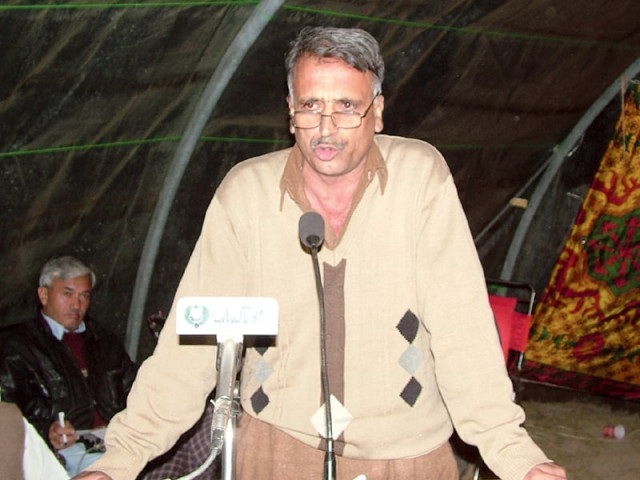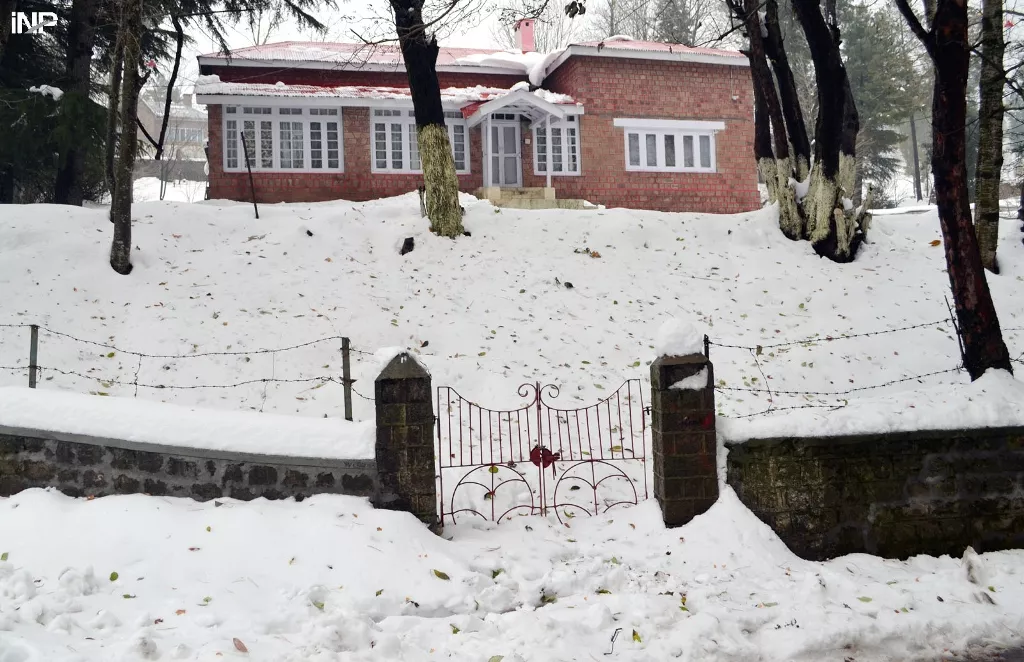Literary excellence: The many sorrows of Dukhi — a Shina poet
His voice has reached beyond the borders in Indian Kashmir where his poetry has many admirers.

Not for nothing he is known as Habib Jalib of Gilgit-Baltistan (G-B). His protest poetry in Shina language is a lament against the political alienation and cultural isolation of his mountain homeland from mainstream Pakistan; and it is no mere stylicism that he takes the pen name of Dukhi (despondent and sorrowful) for his poetry reflects the many ills like sectarianism and ethnic prejudices which undermine life in present day Gilgit-Baltistan.
Jamshed Khan Dukhi, 56, is an obscure government servant but a well-known Shina language poet. His verses are quoted by politicians and commoners alike. His voice has reached beyond the borders in Indian Kashmir where his poetry has many admirers. His poem “My Motherland” has found resonance across the border where political speeches are often laced with its verses. But cultural isolation and apathy towards minority languages has forced him to write poetry in Urdu also.
“Pata susral ka do to khabar lain, Meri maa too bata kis ki bahoo hay.”(Tell me about your in-laws, mother, so that I may know whose daughter-in-law you are) is his caustic reference to the pathetic neglect of Gilgit-Baltistan by Pakistan that the mountain region ‘wedded’ on the eve of independence.
“I regret the political estrangement of my region from mainstream politics and my poetry is simply an expression of my feelings,” said Dukhi in an exclusive interview with The Express Tribune. “I have had to write poetry in Urdu to reach out to the politicians and rulers in the mainland who do not understand Shina.
Dukhi who is the author of the portion on Gilgit-Baltistan in the Pakistani Cultural Encyclopedia published by Lok Virsa in 2005, has also translated a volume of Allama Iqbal’s works in Shina which has earned him great respect among the poets and writers of G-B. He has written with feeling against sectarianism, particularly those who fan hatred between Shias and Sunnis.
Professor Usman Ali, a renowned literary person of the area, describes him as “a man of open mind born in a narrow valley.” Sherbaz Barcha, another well-known historian, acknowledges Dukhi’s efforts in restoration of peace in ‘bleeding Gilgit’, while contemporary poets say his work has brought respect and recognition to the Shina language.
Dukhi has suggested the addition of more vowels in Shina’s alphabet to enrich the language. “It is necessary to include some words from Arabic and English in Shina if we want to expand the language,” he proposes. But this change is yet to come due to opposition from the purists.
Dukhi is also disappointed with the role of state-run media, especially Pakistan Television (PTV), in failing to project regional cultures. “PTV should allocate sufficient time and broadcast dedicated programmes to highlight regional cultures, as culture is the only tool to reach out to people nationally as well as internationally.”
He, however, praised the G-B chief minister, who recently donated Rs1.2 million to the Gilgit Arts Council, a body formed by local writers and poets in the late 80s. He suggests opening of a branch of the Pakistan Academy of Letters in G-B to promote the region’s culture.
Published in The Express Tribune, December 6th, 2011.













COMMENTS
Comments are moderated and generally will be posted if they are on-topic and not abusive.
For more information, please see our Comments FAQ